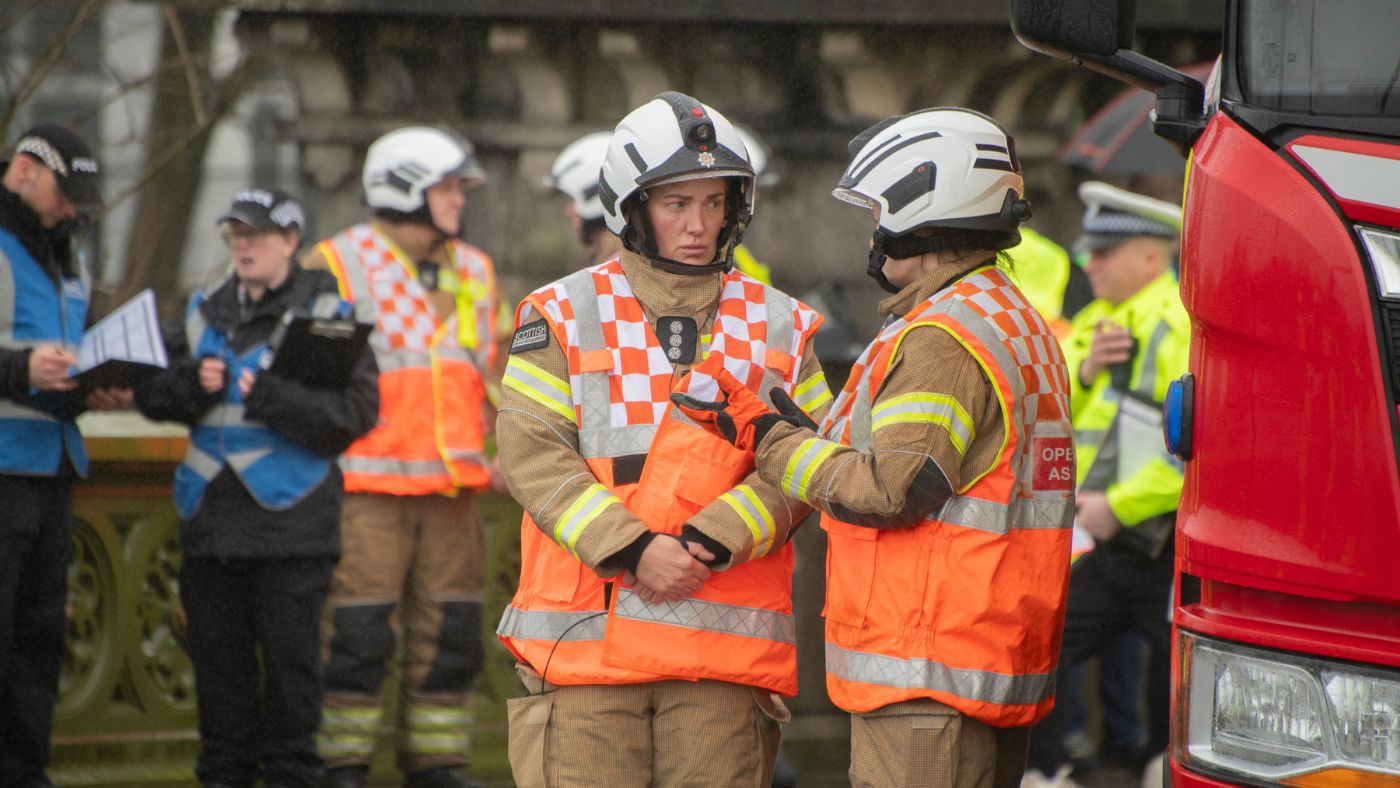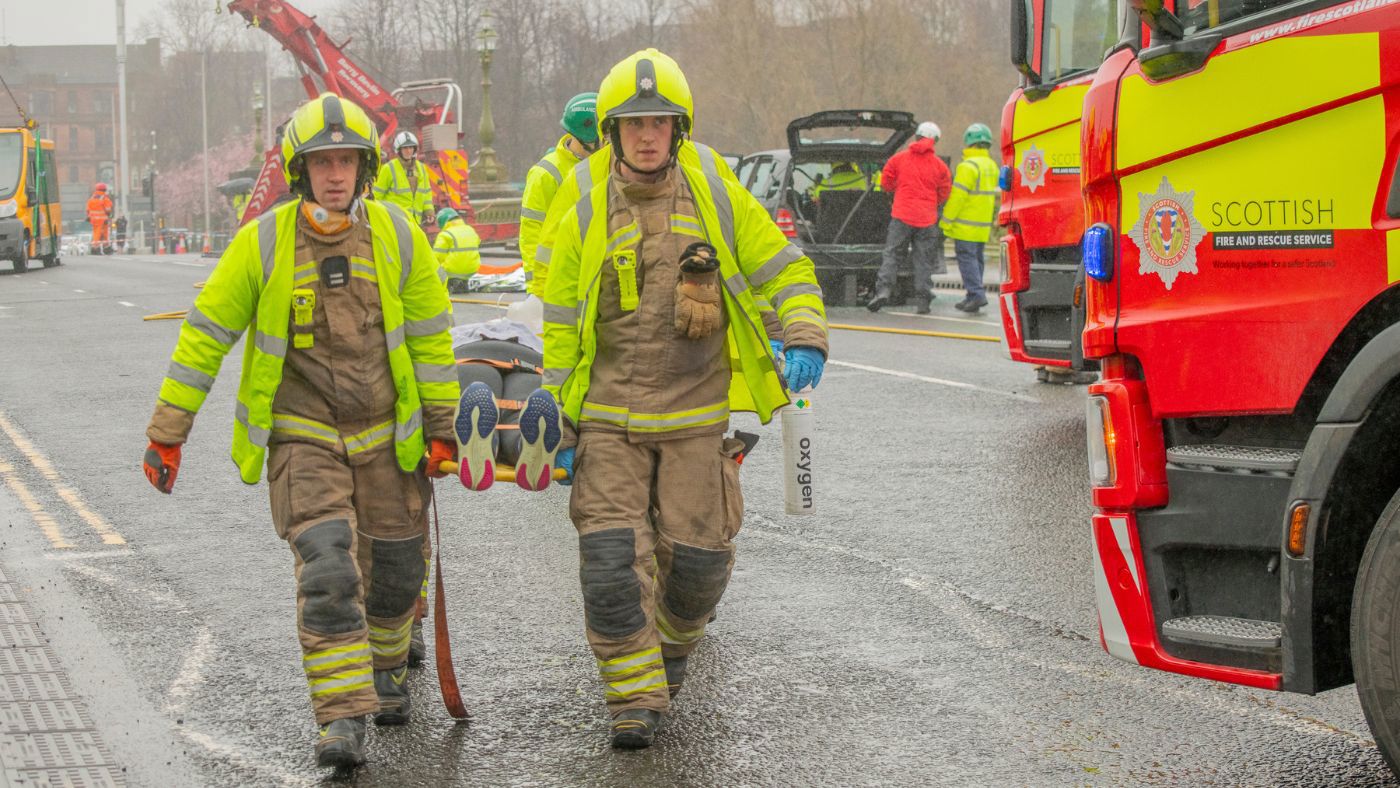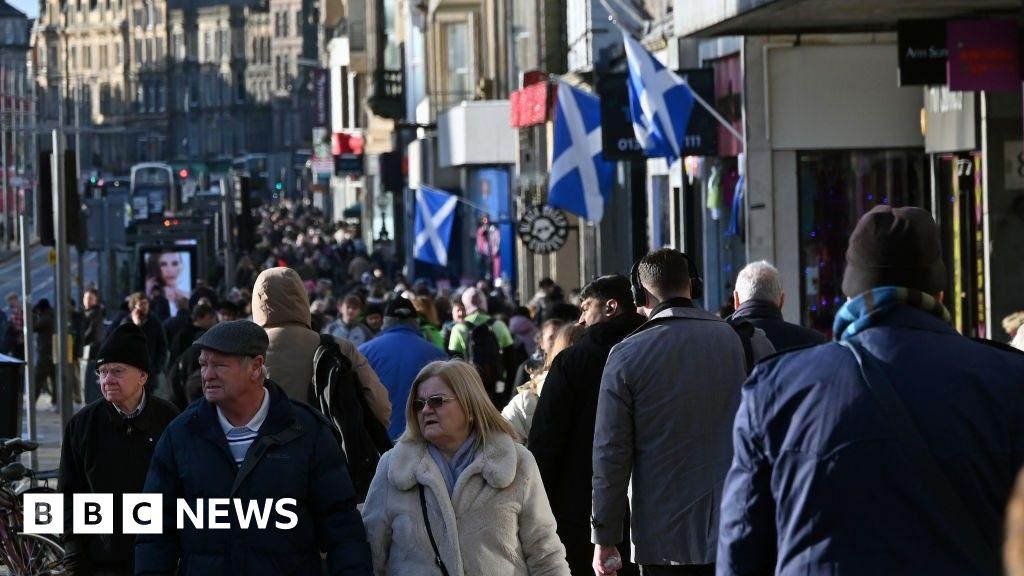Fitness
100 emergency service workers join training exercise in Glasgow city centre

The exercise, held on Wednesday, 13 March, at Albert Bridge, tested the collective response to an incident where a minibus with passengers veered off the bridge into the River Clyde.
Led by the Scottish Fire and Rescue Service (SFRS), the exercise brought together personnel from Police Scotland, HM Coastguard, the Royal National Lifeboat Institution, and the Glasgow Humane Society.
Nursing students from the University of Glasgow School of Medicine, Dentistry, and Nursing also volunteered to take part to gain valuable real-world experience dealing with a major incident and to assist as live casualties in a role play.
Area Commander David Murdoch is the SFRS’s Local Senior Officer for the City of Glasgow. He said: “It’s really important to bring emergency services together for training exercises like this one in Glasgow to test our readiness to respond to serious incidents involving multiple casualties.
“By simulating scenarios, like a minibus accident, we can identify areas that worked well or establish where we need to refine our protocols so that we continue to work together to protect communities.
Ultimately, we want a well-coordinated response to any emergency to mitigate the impact of the incident.
Emergency personnel were presented with various challenges, including vehicle extrication, rescuing simulated victims from the minibus, performing water rescue operations, as well as coordinating medical treatment, managing traffic and crowd control.
Superintendent Christopher Stewart of Police Scotland’s Emergency, Event and Resilience Planning said: “This is one of many pre-planned exercises and was not in response to any specific threat.
“The public should rightly expect Police Scotland to practice and strengthen our response to a major incident alongside other organisations, and exercises like this allow us to do just that.”
The public should rightly expect Police Scotland to practice and strengthen our response to a major incident.

“We are part of a well-established multi-agency training programme that provides valuable training and learning. It’s important for exercises to be as realistic as possible, and we appreciate the efforts of everyone who participated.”
Senior Coastal Operations Officer Steve Muldoon said: “It’s important for HM Coastguard to rehearse this kind of hazardous situation alongside fellow emergency services because we frequently attend incidents that require a multi-agency response.
“This is an opportunity to test our communications, coordination and shared situational awareness so that, if the worst happens, we can respond together swiftly and effectively.
“HM Coastguard has a statutory responsibility to co-ordinate incidents at sea and, locally, within the tidal waters of the River Clyde. Taking part for HM Coastguard will be the Coastguard Rescue Teams from Greenock and Helensburgh and our RNLI partners at Helensburgh lifeboat.”
If the worst happens, we can respond together swiftly and effectively.

Glasgow City Council spokesperson said: “Today’s multi-agency training exercise was extremely meaningful. It allowed us the chance to work with our partner agencies to test our protocols so that in the event of an emergency we can co-ordinate the most efficient response.”
In addition to assessing operational preparedness, the exercise presents a platform for distributing community safety messages, including key messaging on water, road, pedestrian, and cycling safety.
By integrating these messages into the exercise, we not only ensure emergency preparedness but also actively contribute to promoting public safety and wellbeing.
As we conclude this exercise, we are committed to further collaboration and implementing the lessons learned to enhance our capabilities for the safety of our communities.
SFRS would like to thank the community, the local authority, and emergency service partners for their support in planning and implementing this exercise.










